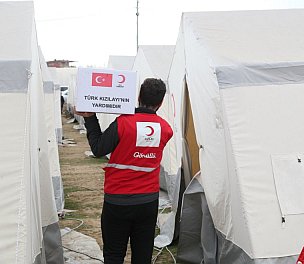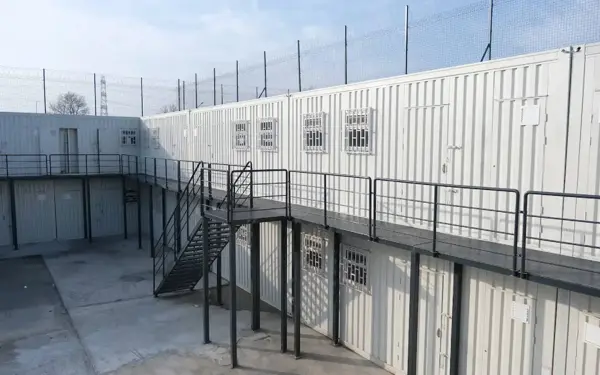Click to read the article in Turkish
Following the devastating earthquakes on February 6 that affected 11 provinces in Turkey, resulting in over 50,000 deaths and severe damage to over 227,000 buildings, bloodstocks of Turkey's Red Crescent (Kızılay) have fallen below its threshold.
Turkey's Red Cross equivalent has made calls for blood donations in recent days as the daily stock of 50,000 units in its depots has been halved, falling short of the required amount.
Bianet spoke about the matter to Dr. Burak Kızanlık from the Red Crescent's Çapa Blood Donation Center and Dr. Güray Kılıç from the İstanbul Chamber of Physicians.
The physicians emphasized that "the decrease in stocks below the minimum level at The Red Crescent carries serious risks because there is no other institution authorized for blood supply."
'There should be 50,000 units of blood'
Dr. Kızanlık states that there should be 50,000 units of blood ready in the depots every day, but this number has halved.
"Blood donation should continue independently of all challenges in Turkey. ... blood cannot be obtained in any other way than donation and there is no other alternative to donation," he explains.
"We had more blood than usual in our depots during the earthquake, and we were able to distribute it without any problems, but we cannot meet this requirement if a similar situation occurs today," Dr. Kızanlık continues, welcoming people to come to donate blood.
Dr. Kılıç from the İstanbul Chamber of Physicians discussed the reasons for the decrease in Kızılay's blood stocks and stated that the decrease in trust in the Red Crescent among the public caused the decrease in blood stocks.
In the aftermath of the February 6 earthquakes, the Red Crescent faced criticism and controversy over handling their relief efforts. For instance, the organization reportedly sold tents to the social assistance organization AHBAP for 46 million liras (2.16 million euros) on the third day of the disaster.
"There is not a complete crisis, but there is a problematic situation," Kılıç states.
Kılıç stressed the importance of separating the lack of trust in the Red Crescent from the act of blood donation and asserted that the former must not impact the latter, "The damage to Red Crescent's reputation can be fixed, but please donate blood. Blood is a very delicate matter. We donate blood for ourselves. Let's not give up on blood donation."
Does the Red Crescent sell blood?
After the blood donated to The Red Crescent passes laboratory tests, it is separated into three different components: erythrocytes, thrombocytes, and plasma.
These components are usually sent to hospitals according to the patient's needs. The Red Crescent directly provides blood to hospitals, not individuals. Hospitals that request blood from the Red Crescent pay a service fee for blood supply to Public Social Security Institution (SGK), which gets transferred to the Red Crescent. So the Red Crescent does not enter into a direct monetary exchange with patients.
The objections to the claims that the Red Crescent sells blood begin precisely at this point. Professional organizations argue that no payment should be taken for blood obtained entirely by donation. Private hospitals are at the center of the sales controversy due to their practice of requesting blood fees from the SGK and additional fees from patients. This additional fee is considered illegal.
(RT/WM)







.jpg)
.jpg)
.jpg)

.jpg)




